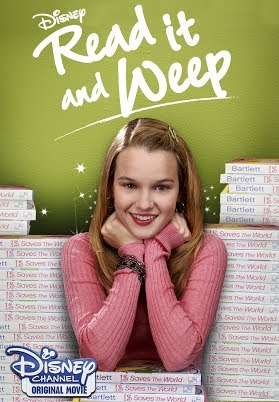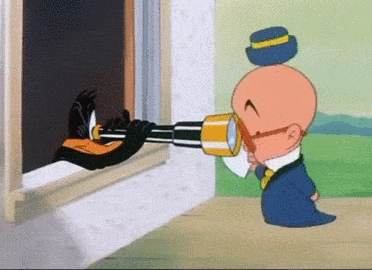This is a guest post from the incredible Hannah Heath. She is an amazing writer and an all around cool person, but don't take my word for it. If you like this article, and I know you will, check out her blog here, and buy her e-book, "Skies of Dripping Gold", on Amazon.
Hi everyone! I’m very excited to be able to contribute to
Tamara’s blog today. Many thanks to Tamara for inviting me to do this, and many
thanks to you for tuning in!
Raise your hand if you’ve ever wished you could use the
Force…maybe to grab that book from your shelf without getting out of bed. Don’t
lie. I know you have.
We’ve all been there. When we were little, we pretended to shoot fire from our hands or fly around the world, mimicking our favorite characters.
Now we’re older and it’s less socially acceptable to pretend that
empty paper towel rolls are magical swords. Lame, right?
Thankfully for us writers, it’s totally normal to sit around
and imagine up entirely new powers and magic systems. Suddenly things aren’t so
drab.
But hold on a second. It’s easy to let superpowers and
wizardry get out of control. I think a lot of authors get carried away by the
sheer awesomeness of it, which is why books are overrun with characters
wielding half-baked powers and living in magic systems that don’t make any
sense. Authors get halfway into a story and end up so muddled with their power-building
that they can’t dig themselves out.
You don’t want that to happen to you. Here are some do’s and
don’ts to crafting characters who have special powers:
1) Don’t change rules just to make your character cooler. Do keep the rules consistent.
Before
you get in too deep, consider sitting down and outlining the rules and
regulations of the special powers in your story. What are the powers? Where do
they come from? How are they controlled? Are there other characters besides the
main character that have powers? What are the limits to these powers? Think out
all of the details, write them down somewhere, and stick with them. These rules
should not be thrown out the window when it comes to your main character. If
your character is somehow excluded from certain rules, you’ll want to add some
other “special” rules to keep him in check. You’ll also need a good reason for
your character’s specialness. Unless it’s a central part of the story, throwing
a 1,000 year prophesy at her isn’t going to cut it. And no, the “I just want
him to be awesomer than everyone else” reason is not a good reason. Sorry.
2) Don’t overlook complications. Do think the powers through first.
Like the rules, your
powers need to be considered extensively. Your character can draw energy from
her surroundings? Great, but “energy” tends to be in the form of heat, so
wouldn’t that mean she would cause everything around her to become extremely
cold? She could kill herself and those around her. Your guy can fly? Epic. But
can he breathe at high altitudes? What if he goes too high and passes out? Being
able to read thoughts or see into the future is neat, but it also has the
potential to unhinge a person’s mind. THINK about powers and all of their
complications before you put them to work. There should be no silly wand-waving
or foolish incantations in your story.
3) Don’t make your character all-powerful. Do give him restrictions.
Meet Bob. Bob has
unlimited resources, is the coolest person ever, and never comes up against
anything he cannot conquer. Bob can do everything. Nobody likes Bob. Don’t write
a Bob. No one wants to read about a character who is invincible, because then
there’s never any suspense. We know he’s going to come out okay, so why even
bother finishing the story? Give your character limits. You can either give
them a character flaw (such as arrogance) or a “power check” (a rule that
blocks the character from full use of their power). Or you really can have the
character be all-powerful, but still unable to reach his/her goal. Anakin was
the most powerful Force user in the galaxy. Padme was not, and the fact that he
might not always be able to protect her literally drove him mad. Neo had
unlimited power in the Matrix, but he was held back by the fact that he couldn’t
save Trinity. While these are not restrictions of power, they are emotional
restrictions that kept the characters in check.
4) Don’t be generic. Do dive into some research.
There are a ton of special powers you can choose
from. Mimicry, alchemy, quantum tunneling, psychometry, negation. There are a
lot of cool ones. Just go ask Google for a list of supernatural powers and
magical abilities. You as the writer can pick between many phenomenal cosmic
powers! Why limit your characters to an itty bitty selection of abilities?
5) Don’t substitute powers for personality. Do make your character’s ability purposeful.
Your
character is a person first, then a power-user. Avoid getting so caught up in a
character’s power that you forget to give the character any meaning outside of
his power. Find a way to make your character’s ability entwined with the character’s
personality and journey. When you give a character a power, ask yourself why.
Why this power? Does it symbolize something? Does it move something along in a
story? Or is it just random fluff that looks cool but serves no real purpose? I
mean, we can’t all make our super cute vampire guys sparkle in the sunlight for
no reason. Resist the urge. It’s hard, but I know you can do it.
6) Don’t just show the power. Do explain how the power feels.
One of the most interesting parts of
a character with special abilities is getting to understand what it feels like
to wield those abilities. Does it feel like the unleashing of a dam? Or maybe
the weaving together of threads? Is the feeling always there, or does it only
show itself when the power is tapped into? Does using the ability make her feel
tired, high, or frightened? Tell us what the character experiences when
engaging her powers. It makes it more real.
Creating a character who has superpowers or magical
abilities is insanely fun, so run wild. But not too wild. You are the creator
of this character, so learn how to enjoy the creation process while also
putting together a character with abilities that make sense and fit the story.
Now go forth and create awesome characters with awesome
powers! Don’t be afraid to dream a little bigger.
Have you ever written a character with special powers? Do
you have any tips to add or questions to ask? Leave a comment below!







